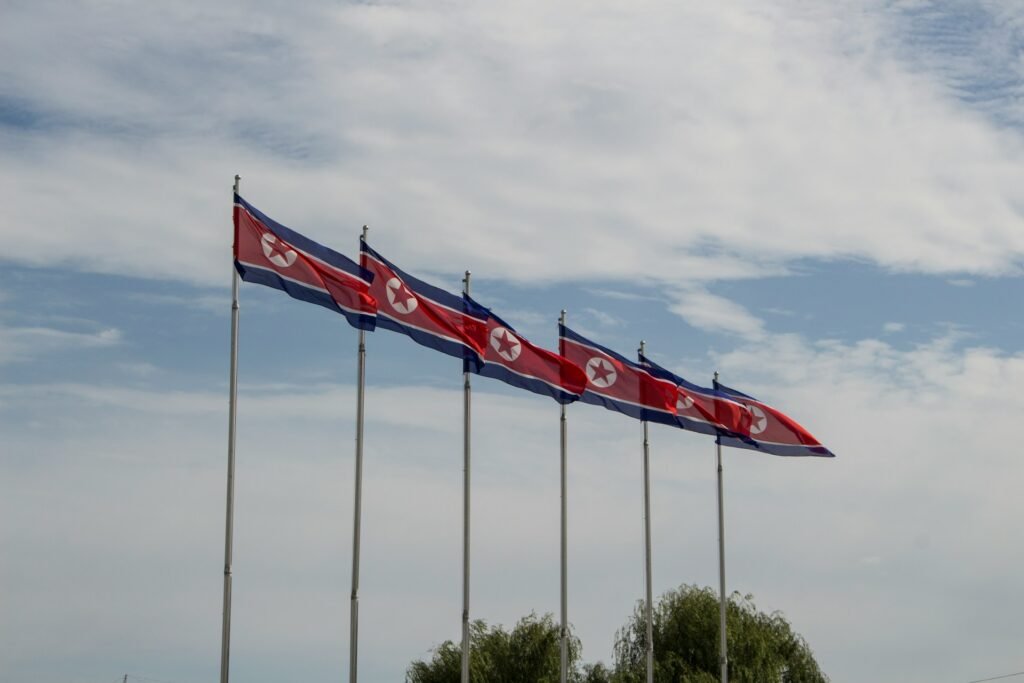What Do We Mean by “Socialist Countries”?
When people search “socialist countries,” they usually mean states that formally organize their political system around building socialism. In political science and contemporary usage, this usually points to one-party states led by a communist party that self-identify as socialist in their constitutions (often called “socialist states” or “communist states”).
At the same time, other countries use the word “socialist” in symbolic ways (e.g., in a national preamble or official name) while maintaining competitive, multi-party systems and mixed economies—so they’re not socialist states. Understanding these buckets prevents category mistakes.
Three useful buckets
- Self-declared socialist states (one-party): constitutionally committed to socialism and led by a communist party (2025: China, Cuba, Vietnam, Laos, North Korea).
- Constitutional references to “socialism” (pluralist systems): democratic states whose constitutions mention socialism or adopt “socialism-oriented” goals (e.g., India’s Preamble; Nepal’s “socialism-oriented” state; Sri Lanka’s official name).
- Governments with socialist programs: multiparty democracies where ruling coalitions/parties pursue socialist-leaning policies. These are programmatic, not constitutional, and can change with elections.
| Year | Milestone (selected) |
|---|---|
| 1917–1991 | Soviet period shapes the global map of socialist states; Eastern Europe’s socialist regimes dissolve by 1989–1991. |
| 1949 | People’s Republic of China founded; later codifies a “socialist market economy.” |
| 1959 | Cuban Revolution; 2019 constitution defines a “socialist state of law and social justice.” |
| 1975–1976 | Lao PDR and reunified Socialist Republic of Vietnam adopt socialist constitutions. |
| 2019 | DPRK constitution updates; Article 1 defines the DPRK as an “independent socialist State.” |
Socialist Countries Today (2025): The Five One-Party Socialist States
As of November 2025, five countries constitutionally identify as one-party socialist states led by communist parties: China, Cuba, Vietnam, Laos, and North Korea. This “current list of socialist (communist) states” remains stable across standard reference overviews and contemporary rankings.
What qualifies them is not just policy branding but explicit constitutional language plus a single ruling party with vanguard status. Below are concise constitutional anchors and each state’s official economic framing.
China (People’s Republic of China)
China’s constitution (amended 2018; official English 2019 archive) states that the state “shall practice a socialist market economy” (Article 15), formalizing a hybrid system of market mechanisms under party leadership and substantial public ownership.
Why counted: constitutional commitment to socialism + rule by the Communist Party of China.
Cuba
Cuba’s 2019 constitution defines the country as a “socialist State of law and social justice” (Article 1) and makes socialism irrevocable, while allowing limited private enterprise within the socialist framework. Authoritative English texts are publicly available.
Why counted: explicit socialist state definition + rule by the Communist Party of Cuba.
Vietnam (Socialist Republic of Vietnam)
Vietnam characterizes its system as a “socialist-oriented market economy” (Article 51 of the 2013 constitution), combining multi-ownership sectors and market coordination under the leadership of the Communist Party of Vietnam.
Why counted: socialist constitutional identity + one-party rule by the CPV.
Laos (Lao People’s Democratic Republic)
The Lao constitution entrenches the Lao People’s Revolutionary Party as the political system’s “leading nucleus” (Article 3; 1991 constitution with later revisions, including 2015), establishing centralized one-party rule with a socialist orientation.
Why counted: constitutional vanguard role of the LPRP + self-described socialist path.
North Korea (Democratic People’s Republic of Korea)
The DPRK’s 2019 constitution, in Article 1, declares the state an “independent socialist State,” under leadership of the Workers’ Party of Korea; English translations of the updated text are available via academic and policy repositories.
Why counted: explicit socialist state definition + one-party system under the WPK.
| Country | Latest constitutional anchor (EN) | Ruling party | Official economy framing |
|---|---|---|---|
| China (PRC) | Art. 15: “socialist market economy” (2018/2019 EN) | Communist Party of China | Socialist market economy |
| Cuba | Art. 1: “socialist State of law and social justice” (2019) | Communist Party of Cuba | State-led economy with permitted private sector |
| Vietnam | Art. 51: “socialist-oriented market economy” (2013) | Communist Party of Vietnam | Socialist-oriented market economy |
| Laos | Art. 3: LPRP as “leading nucleus” (1991; rev. 2015) | Lao People’s Revolutionary Party | Market-oriented reforms on a socialist path |
| North Korea (DPRK) | Art. 1: “independent socialist State” (2019) | Workers’ Party of Korea | Centrally planned with limited market activity |
Note: The five-state count describes constitutionally self-declared socialist, one-party systems; it excludes multi-party democracies whose constitutions merely reference “socialism.” Cross-checking with live constitutions is the most reliable way to maintain accuracy over time.
Countries That Mention “Socialism” but Are Not Socialist States
Some democracies use the word socialist in their constitutions, preambles, or official names to express social-justice aims. These references do not make them one-party socialist states. They retain multiparty competition, independent courts, private ownership, and regular elections. As of November 2025, the examples below are the most searched and frequently misunderstood.
Key idea: look at constitutional wording + party system. If the constitution merely sets “socialism” as a guiding value—without granting a single party vanguard status—the country is not classified alongside the five one-party socialist states.
| Country | What the Constitution Says (EN) | System & Notes |
|---|---|---|
| India | Preamble: “SOVEREIGN SOCIALIST SECULAR DEMOCRATIC REPUBLIC” (word “socialist” added by the 42nd Amendment, 1976). | Large multiparty democracy with mixed economy. Periodic debate exists about the wording, but the Government of India stated on 24 July 2025 it will not remove “socialist” from the Preamble. |
| Nepal | Article 4: Nepal is a “socialism-oriented federal democratic republican state.” | Pluralist parliamentary democracy; “socialism-oriented” signals policy direction, not one-party rule. |
| Sri Lanka | Official name: “Democratic Socialist Republic of Sri Lanka.” | Competitive multiparty system; the label in the state’s name doesn’t create a socialist one-party structure. |
| Bangladesh | Article 8 lists the four fundamental principles: nationalism, socialism, democracy, secularism. | Parliamentary democracy; “socialism” functions as a guiding principle for policy, not a constitutional monopoly for a ruling party. |
| Portugal | Preamble (1976; current consolidated text): opens “a path towards a socialist society” while affirming a democratic state based on the rule of law. | Liberal-democratic, multiparty EU member; preamble language is historical-programmatic, not a one-party constitutional design. |
Bottom line: constitutional or symbolic references to “socialism” can indicate policy goals or historical values, but without a one-party vanguard and explicit socialist-state articles, these countries are not grouped with China, Cuba, Vietnam, Laos, or North Korea in lists of socialist states. Use the wording-plus-party-system test to avoid misclassification.
Why Do Definitions Get Confused?
First, the term socialism describes a family of ideas about social/collective ownership of productive resources, not a single blueprint. Encyclopedic definitions emphasize public rather than private control of key assets and resources.
Second, contemporary one-party socialist states often use market mechanisms. China constitutionally commits to a “socialist market economy”; Vietnam describes a “socialist-oriented market economy.” Those phrases signal a hybrid: using markets under party leadership with substantial public ownership.
Third, in pluralist democracies, “socialist” may appear as an ideological goal (e.g., “social justice” or “socialism-oriented development”) without changing the constitutional structure or party system—hence they are not classified alongside the five one-party socialist states.
FAQ
How many socialist countries exist today?
Five one-party socialist states are widely recognized in 2025: China, Cuba, Vietnam, Laos, and North Korea.
Are “communist countries” and “socialist states” the same thing?
In practice, yes—today’s one-party states led by communist parties call themselves socialist states working toward communism. Reference lists group the same five.
Do China and Vietnam have free markets?
They use markets extensively but describe this as a socialist (or socialist-oriented) market economy under party leadership and significant public ownership.
Why does India’s constitution say “socialist” if India isn’t a socialist state?
“Socialist” in India’s Preamble (added in 1976) signals social-justice goals but India remains a multi-party democracy with a mixed economy; it’s not a one-party socialist state.
Is Sri Lanka socialist because of its official name?
No. The official name includes “Democratic Socialist Republic,” but Sri Lanka is not organized as a one-party socialist state.
Where can I read the constitutions that use this language?
China (Art. 15), Cuba (Art. 1 & 4), Vietnam (2013), Laos (2015), DPRK (Art. 1) have English texts accessible online. Links appear in the profiles above.
What Did We Learn Today?
- As of 2025, there are five one-party socialist states: China, Cuba, Vietnam, Laos, and North Korea.
- Constitutional wording matters: “socialist market economy” (China) and “socialist-oriented market economy” (Vietnam) encode hybrids.
- India, Nepal, and Sri Lanka reference socialism but operate as multiparty democracies.
- “Socialist” is broader than a single model; definitions cover public control of key resources in varying forms.
- Terminology causes confusion; using the three buckets helps answer most queries precisely.





